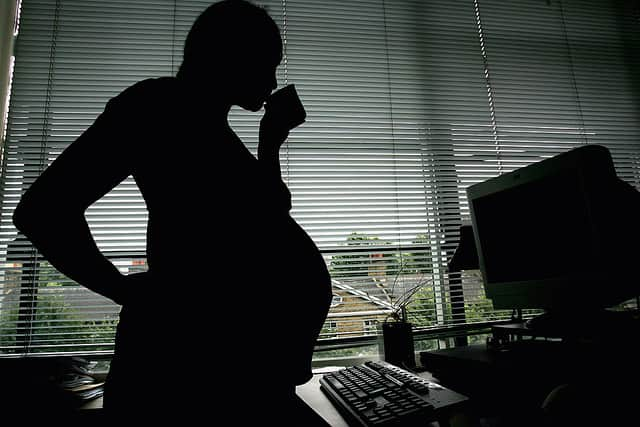Health: half of anxiety and depression cases in new or expectant mothers missed by NHS, says report
and live on Freeview channel 276
Half of anxiety and depression cases among new and expectant mothers in the UK are not being diagnosed, a new report has warned.
The Royal College of Midwives (RCM) said that 10% to 20% of women develop a mental illness during pregnancy or within the first year after having a baby, which can include anxiety, depression, and other severe mental health issues. However, too many of these cases are being missed according to the organisation’s new report, even when contact is made with professionals.
Advertisement
Hide AdAdvertisement
Hide AdOne issue, midwives said, is that appointments with new and expectant mothers are often “too short”, meaning there is not enough time to have proper conversations about mental health and wellbeing. This combined with the fact that approximately 70% of women either “underplay or hide” the severity of their mental health problems, due to societal stigma and expectations, means that many mothers are not receiving the help or support they need.
The report also higlighted that there is often a lack of training and education around emotional health and wellbeing in certain hospitals, with 15% of maternity wards not having a perinatal mental health midwife. And, even when these professionals are available, they are often used to cover staff shortages elsewhere.
The RCM argued that these problems reflect how mental health still remains “secondary” to physical health during both pregnancy and postpartum. To combat this, they have called for a boost in staffing numbers in the NHS - so that they can spot more cases of mental ill health.


Birte Harlev-Lam, executive director of the RCM, said: “Midwives are telling us they have quite a short time with women. So although midwives are the health professional that women see the most during their pregnancy, and they see them face-to-face, they often have really short appointment slots – they might be 15 minutes or 20 minutes – and in that time they have to do a whole host of observations and checking on the mother and the baby, and so on.
Advertisement
Hide AdAdvertisement
Hide Ad“Therefore, the time to sit down and have a really honest conversation is quite limited. We do know time is definitely a pressure and of course that goes back to the shortage of staff that we see.”
“The other thing we know is that midwives don’t always have the right education, or enough of the right education, to really have some of those in-depth conversations,” she continued - explaining that while 85% of maternity units have some form of perinatal mental health midwife who can support and advise the other midwives, they usually don’t have one who works full-time.
“And of course,” Ms Harlev-Lam added, “there’s the 15% who don’t have a perinatal mental health midwife at all. So the support for the midwives who sit in front of the women and have those conversations is not always there.”
The report also pointed out that between the years 2018 and 2020, suicide was the leading cause of maternal death during the first year of birth.
Advertisement
Hide AdAdvertisement
Hide AdTherefore, as part of its action plan, the RCM has called for 350 additional midwives to help women struggling with mental health issues around the time of birth - adding that all health workers in contact with pregnant women and new mothers should receive annual mental health training. Meanwhile, every NHS trust or health board should have at least one specialist midwife, it added.
An NHS England spokesperson said: “Women across England are benefiting from specialist perinatal mental health support with an estimated 51,000 new mums treated over the last year – up nearly 60% compared to two years ago – with every local health system now having access to a specialist community perinatal mental health team.
“The NHS Long Term Workforce Plan commits to increasing the maternity workforce, and perinatal mental health services continue to expand including new services for women experiencing mental health difficulties arising from trauma or loss in the perinatal period.”
A Department of Health and Social Care spokesperson added: “We are expanding and transforming mental health services as part of the NHS long term plan – meaning that by 2024 at least 66,000 women with moderate to severe perinatal mental health difficulties will have access to specialist community care, up to 24 months after the birth of their babies.
Advertisement
Hide AdAdvertisement
Hide Ad“This expansion, along with the opening of four new mother and baby units in 2019, means that in every part of England the most seriously ill women can receive residential care without being separated from their babies.”
Comment Guidelines
National World encourages reader discussion on our stories. User feedback, insights and back-and-forth exchanges add a rich layer of context to reporting. Please review our Community Guidelines before commenting.
